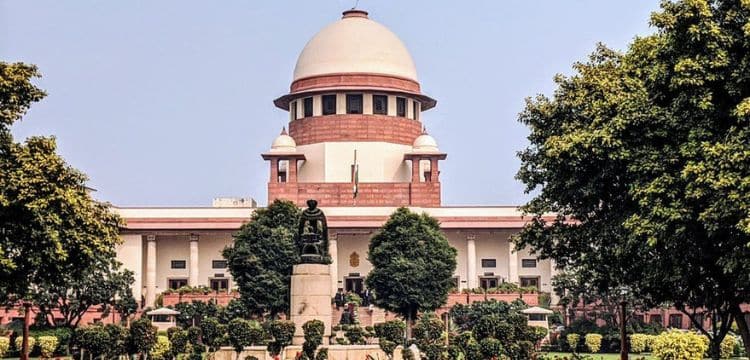[vc_row][vc_column][vc_column_text dp_text_size=”size-4″]On Monday, India’s Supreme Court delivered a unanimous verdict, affirming that the special status of occupied Kashmir was a provisional arrangement and upheld the decision to revoke Article 370 in the constitution, as reported by the Times of India.
The court also instructed the election commission to conduct elections in occupied Kashmir by September 30, 2024.
In 2019, the ruling Bharatiya Janata Party (BJP) in India had nullified the special status of occupied Kashmir by abrogating Article 370, which limited the authority of the Indian parliament in enacting laws in the region, except for defense, foreign affairs, and communications.
This move granted individuals from other parts of the country the right to own property and permanently settle in occupied Kashmir. Critics, international organizations, and Kashmiris perceived this action as an effort to alter the demographic composition of Muslim-majority Kashmir by encouraging Hindu settlement.
Chief Justice of India (CJI) D.Y. Chandrachud, leading a five-member bench, commenced hearings on July 11, addressing petitions challenging the amendment to Article 370, and reserved the verdict on September 5.
Also Read: Ex-IIJ&K Governor reveals sinister Indian plan to blame Pakistan for Pulwama attack
Pro-India political parties in the region, the local Bar Association, and individual litigants contested the decision. The pleas included challenges to the bifurcation of India-held Kashmir into two union territories.
Supreme Court’s Ruling
The Supreme Court’s ruling, read by CJI Chandrachud, emphasized that Article 370 was a temporary provision due to war conditions and was not intended to be permanent. It declared the 2019 decision as a valid exercise of power, culminating in the integration process.
The court asserted that occupied Kashmir lost its sovereignty upon joining India and dismissed the argument that irreversible actions couldn’t be taken during presidential rule.
The verdict acknowledged that Article 370 was temporary, stating that occupied Kashmir became an “integral part” of India as reflected in the constitution. The court upheld the reorganization of Ladakh as a union territory and directed the election commission to facilitate legislative assembly elections. It mandated the restoration of occupied Kashmir to the same statehood as any other Indian state, without separate autonomy rights, at the earliest.
Even before Supreme Court judgement is pronounced, Police has sealed the doors of the residence of PDP President @MehboobaMufti and put her under illegal house arrest. pic.twitter.com/Ts2T7yFMrE
— J&K PDP (@jkpdp) December 11, 2023
Justice Kaul, recognizing the need for healing, proposed the establishment of a truth and reconciliation commission to investigate human rights violations since the 1980s. Ahead of the announcement, petitioners Mehbooba Mufti and Omar Abdullah were reportedly put under house arrest.
#WATCH | On Supreme Court constitutionally validating the removal of Article 370 in Jammu and Kashmir, senior Congress leader and Maharaja Hari Singh's son Karan Singh says, "A section of people in J&K who will not be happy with this judgment, my sincere advice is that they… pic.twitter.com/4xm4x06E8S
— ANI (@ANI) December 11, 2023
Prime Minister Narendra Modi praised the verdict as a “beacon of hope,” while some, including Congress leader Karan Singh, expressed concerns about the reactions of certain segments in occupied Kashmir.
https://twitter.com/narendramodi/status/1734106830845133108[/vc_column_text][/vc_column][/vc_row]











